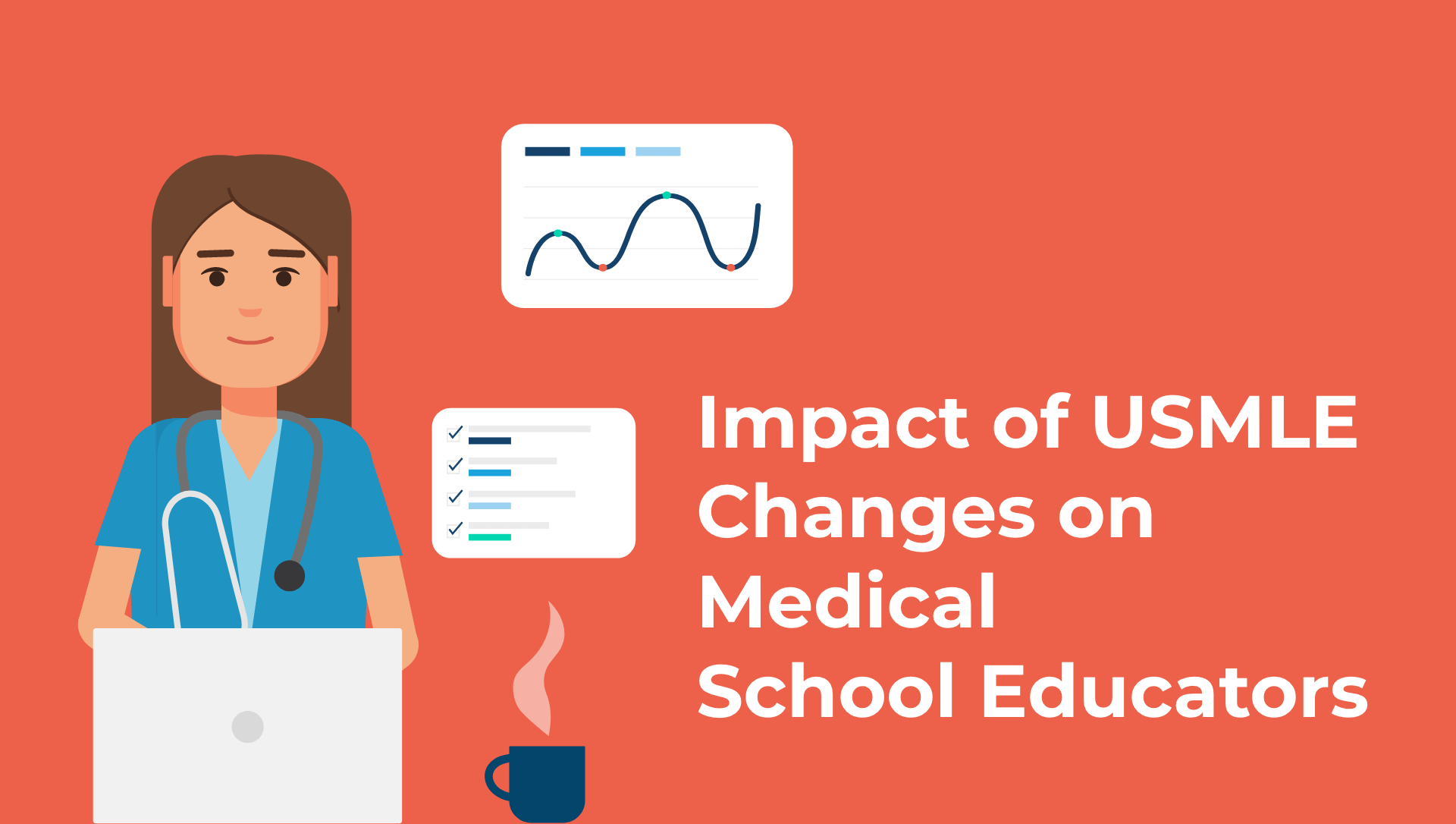The United States Medical Licensing Examination® (USMLE®) is undeniably one of toughest and most competitive tests on the planet. Developed to assess medical students’ preparedness for the workplace, passing the three-step test is required for anyone wishing to practice medicine in the U.S.
While USMLE Step 1 was based on a three-digit score, officials recently transitioned it to a pass/fail model largely to reduce their stress. However many educators are not in favor of this change.
To understand how this change is impacting educators and the students they teach, TrueLearn conducted a survey of more than 250 medical school faculty members, primarily in the U.S.—you may have read about it in Inside Higher Ed and Medical Economics.
 Key Findings
Key Findings
- Diversity, equity and inclusion (DEI) was a major concern cited throughout the survey, and 40% of participants believe students – especially those less privileged – will have a tougher time matching into their top choices for residency.
- Less than half of respondents believe the change will have any positive impact on students’ mental health and well-being.
- More than half of respondents indicated that 5% or more of their medical students undergo formal remediation or delays each year. When asked if they have the data necessary to identify at-risk students, just 26% of participants stated “yes.”
 Key Findings
Key Findings

